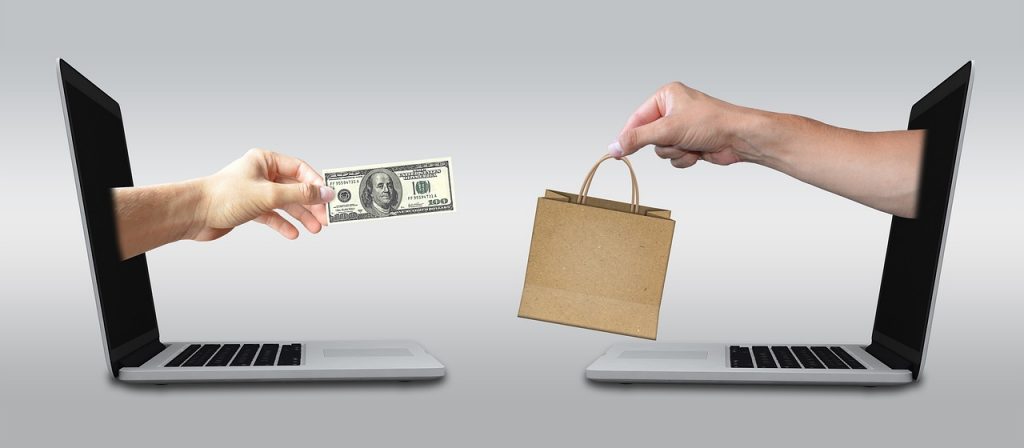Wherever you are, whatever you do, you can’t really escape online payments. Almost everything from utilities to a cinema ticket is nowadays paid for online, and even if you’re a traditionalist, there’s no way you don’t make at least a few online payments every month.
We now see this as normal, but just because it’s so prevalent, does it mean it’s also safe? Well, it overwhelmingly is, but just like most things in life, it’s not a hundred percent safe. This article will take a look at the security of online payment methods and what to do and/or to avoid when paying for something online.
Online Payments vs Offline Payments
Let’s first discuss the security of online payments in comparison to offline payments, because many people who are not sure if they want to make the full leap to online payments are saying that they have trust in offline payments and therefore don’t need to change their ways.
While online payments might have been the less secure option in the past, this is beginning to change, and not only that, but online payments are slowly becoming safer than offline payments. This might sound odd at first glance, but bear with us.
When you go to a store or a restaurant and you pay with your debit/credit card, the process of payment is not over in a mere second as much as it looks that way. The merchant stores the data in their system and this data then travels around various places before the payment is completed.
This makes your bank details vulnerable for the duration of the process. Couple that with the fact that most merchants, even in the wealthiest of countries, use outdated software and payment terminals and you’re suddenly exposed to hacks.
Indeed, merchants worldwide lose billions of dollars per year in credit card fraud. Some notable examples include Target, which confessed that 70 million customer accounts were hacked in 2013, and HomeDepot claiming that 56 million cards were exposed in 2014.
Many of these cards then end up on the DarkWeb where people can purchase them. Most recently, a DarkWeb website published the credit card details of 1.2 million people, which is quite worrying.
Retailers should update their systems, both hardware and software, but this is very costly and not that many will do it. In comparison, online stores were created with security in mind, because first, they have much more to lose, and second, they have to win the nervous customer over.
Modern-day encryption should be the industry standard, but so far land-based retailers have been slow with implementing it, while online retailers have had it since day one.
Mobile Payments
Mobile payments are becoming increasingly popular, so we thought it’d be good to dedicate a whole section to mobile security. Nowadays, a lot of people are shopping online on their phone, pay their bills that way or they play at pay by phone casino sites.
There are a few things that could relate to mobile payments – making a payment through your bank app with your card, using a mobile payment service like Apple Pay, or typing your card details on an online website using your phone.
Let’s start with the banking apps. Banking apps are safer than online banking (your bank’s website), because there’s no risk of you going on a fake website pretending to be your bank or opening an email directing you to one.
Next come the mobile payment services, which are experiencing a boom right now. They are proving to be more secure than credit/debit cards, because you only use your bank details once when you set up your account. Then the service creates a token in place of your card number to make transactions.
Even if someone were to get that number, they won’t be able to steal your money or data because the token is not directly associated with your bank account. Mobile services such as Apple Pay, Samsung Pay, Google Pay, and Microsoft Pay are thus the frontrunners of mobile payment security.
This is why we recommend them if you have the option to pay that way at a land-based retailer, online retailer or at pay by phone casino sites, most of which offer such payment methods nowadays.
However, be careful with the latter as there have also been a lot of fake pay mobile casinos, especially in region where online gambling is restricted. Always inspect a pay with phone casino before you gamble (check the encryption, URL and gambling licenses).
Things to Look Out For
Although we’ve established that online payments have become very secure, now even outpacing offline payments, things can still go wrong.
The biggest issue remains phishing websites that mask themselves as real ones. This could be a website pretending to be your bank’s website that looks identical to it, but its URL never will.
The more common version of that though are online retailers, usually selling clothes and shoes. Google is surprisingly bad at seeding them out and you might find an ad for one featured on the first page, but always look at the URL and remember, if something looks too cheap to be true, it probably is.
Next, you should avoid using unsecure Wi-Fi networks and you should never have your passwords saved on any device, because first, this device could be stolen, and second, because hackers might download a keylogger that will extract all saved passwords.
In terms of mobile payment security, you shouldn’t have your passwords saved on your device and you should try not to be constantly logged in your email. Finally, avoid downloading apps and clicking on links that you get through texts.

More Stories